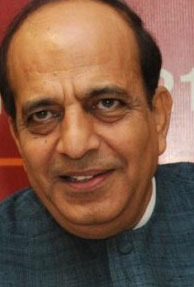Repo Rate, Reverse Repo Rate Hiked by RBI
By
siliconindia | Friday, September 16, 2011

NEW DELHI: All loans are set to become costlier, with the Reserve Bank on Friday hiking the key interest rate for the 12th time since March, 2010, by 25 basis points to rein in high inflation.
With today's decision, the short-term lending (or repo) rate at which banks borrow from the RBI stands increased to 8.25 per cent and the short-term borrowing (reverse repo) rate at which banks park their funds with the RBI to 7.25 per cent.
Headline inflation rose to 9.8 per cent in the month of August from 9.2 per cent in July this year.
Despite the RBI hiking rates several times since March, headline and food inflation are close to double digits.
"As such, a premature change in the policy stance could harden inflationary expectations, thereby diluting the impact of past policy actions. It is, therefore, imperative to persist with the current anti-inflationary stance," the RBI said in its mid-quarter review of the monetary policy.
Going forward, the RBI's stance will be influenced by signs of downward movement in the inflation trajectory, to which a moderation in demand is expected to contribute, besides the implications of global developments, it said.
"The step is consistent with the RBI monetary stance for the first half of 2011-12 and overall concerns on growth sustainability in the medium term.
"I am hopeful that measures taken would get us back a more comfortable inflation situation earlier rather than later, while having scope for growth to pick up in the second half of the year," Finance Minister Pranab Mukherjee said.
Commenting on the rate hike, Indian Overseas Bank Chairman and Managing Director M Narendra said banks need to pass on the hike to customers as the cost of funds has gone up.
"I believe banks would wait till the month-end before taking a call on an interest rate hike," he said.
The RBI said food inflation is near double digits, despite the normal monsoon, underlining the fact that it is driven by structural demand-supply imbalances and cannot be dismissed as a temporary phenomenon.
After a slight moderation in July, non-food manufactured products inflation rose again in August, suggesting continuing demand pressures, it said.
For the week ended September 3, food inflation stood at 9.47 per cent.
The monsoon has been normal so far, it said, adding that the first advance estimates for the 2011-12 kharif season hint at record production of rice, oilseeds and cotton, though output of pulses may decline.
Meanwhile, it said the hike in petrol prices by Rs 3.14 per litre with effect from September 16, 2011, will have a direct impact of 7 basis points on WPI inflation, in addition to an indirect impact with a lag.
Source: PTI

